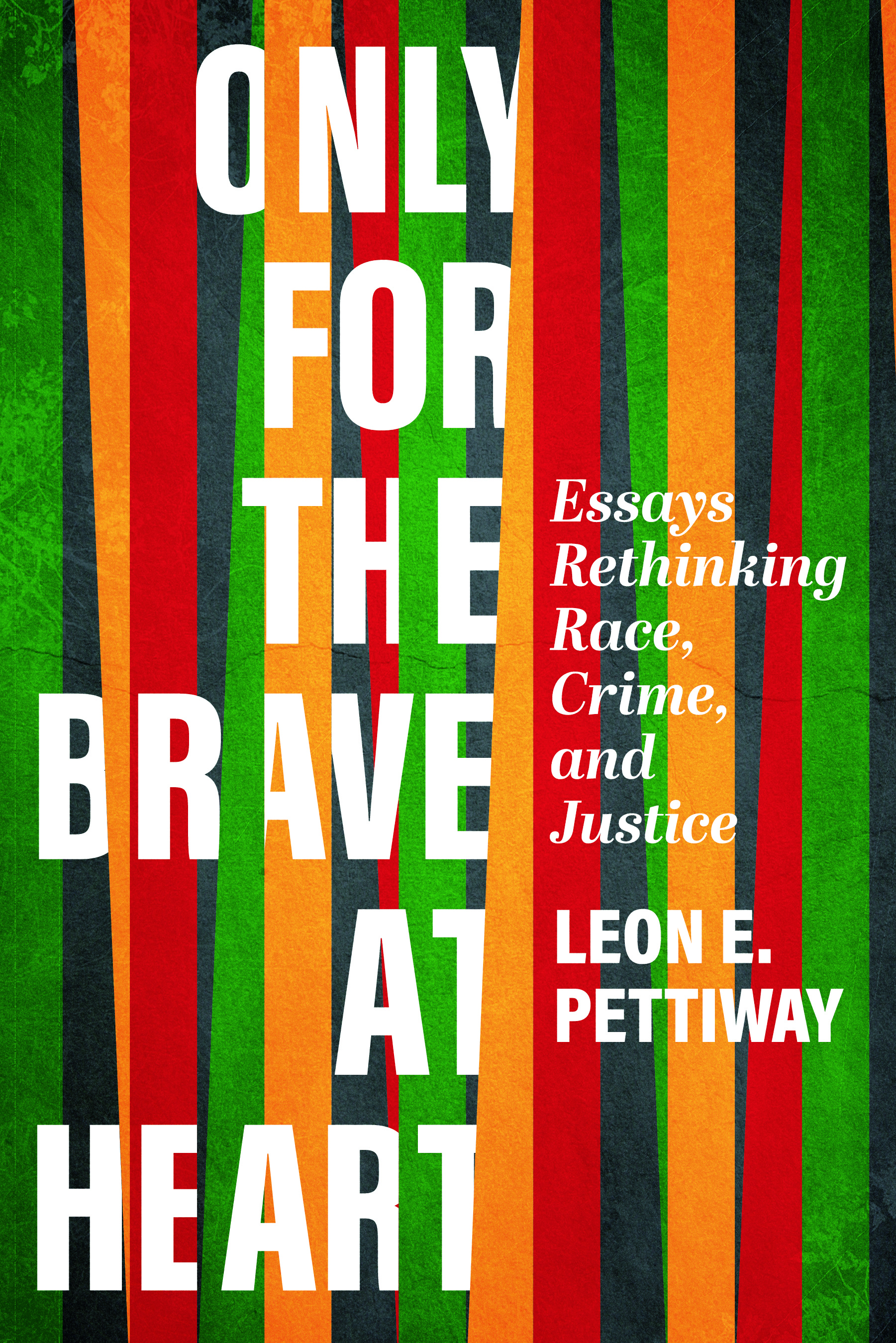Book Review: Only for the Brave at Heart: Essays Rethinking Race, Crime, and Justice
by Leon E. Pettiway
Publication Date: Dec 14, 2023
List Price: $29.99
Format: Paperback, 374 pages
Classification: Nonfiction
ISBN13: 9798989182008
Imprint: Meishin Press
Publisher: Meishin Press
Parent Company: Meishin Press
Read a Description of Only for the Brave at Heart: Essays Rethinking Race, Crime, and Justice
Book Reviewed by Ahmad Wright
There is much to consider in Leon E. Pettiway’s Only for the Brave at Heart: Essays Rethinking Race, Crime, and Justice. Divided in four parts, the essays within each section examine race, politics, and philosophy of White supremacy in its many affected dimensions. With a mindful eye, Pettiway, a professor and self-described Buddhist monk, invites the reader to consider everything they have experienced in conversations about race and to decontextualize the arguments from the inside out.
Part One, “The Preliminaries” is a must-read that outlines topics of discussion within the parameters of the upcoming chapters and essays. For example, “Where Yo’ Mind At?” focuses on reframing how we process loss and violence in America. We are yanked back in time to reflect on the most public cases of death by police, complete with the gruesome foreshadowing of details: Breonna Taylor in Louisville, Kentucky; Ahmaud Arbery in Glynn County, Georgia; Tyre Nichols in Memphis, Tennessee; George Floyd in Minneapolis, Minnesota; Trayvon Martin in Sanford, Florida; Michael Brown in Ferguson, Missouri; Freddie Gray in Baltimore; Tamir Rice in Cleveland; and many others.
As we are asked to “remember our brothers and sisters of every race who have met their death from all forms of violence,” this reflection from Pettiway also invites a focus on the need to train the [American] mind to focus on the root of the race issue. “For those attached to the supremacy of differences, we must help them realize that beliefs in deficiencies and intrinsic differences only fester in fearful minds…” He begs the question of whether race exists, even beyond a social construct. At the same time, we are left to reflect on why so many lives are cut down needlessly by police.
The chapter “Race, Crime, and Justice Ensnared in Substantialism’s Web: Got to Find a Better Way, ’Cause This Sho ’Nuff Ain’t Workin’” invites further philosophical insights that set the underpinnings for the book, challenging the reader to conceptualize the nature of a state of mind where “objects exist without inherent qualities.” There is a call to step away from a Eurocentric worldview on anti-Blackness, racism, and injustice; the author intimates a change in mindset; he accuses Whites of having an investment in a White supremist position that conveniently (intentionally or not) “safeguard[s] the privileges of their race only through the denial and defamation of others.” Similarly, the author insists that Blacks (including Black leadership) have “tribalized” themselves within a Eurocentric mindset that consciously separates the African American from other Africans around the world. Pettiway warns that such a duality in thought recognizes that purely Afrocentric perspectives are a first step toward independence. However, they run the risk of perpetuating similar limitations as the European mindset, especially when looking at race, crime, and justice.
This is a setup for Part II, “Thinking About Race,” where the first chapter opens with a quote by Dr. Martin Luther King Jr. that begins: “Rarely do we find men who willingly engage in hard, solid thinking…”
The first chapter in Part II, “Reflections on Race: The Presentations of Race,” solidifies the author’s position, which is stepped in a Buddhist perspective that pits Blackness and Whiteness, Eurocentric versus “the African” (meaning all Blacks in America and the world). He holds the two racial perspectives on a crash course where each is bound to the other due to past atrocities and psychological trauma. While Pettiway seems to believe “that liberation means transcending the dichotomous extremes of oppression and freedom,” this sentiment forces the reader to think outside of the box, to play within the substantialist medium to consider how thoughts on Blackness often align with “oppression and negativity” while “special” qualities are assigned to Whiteness.
Hence, the last essay in Part II, “Chasing Whiteness” may be the most provocative twenty-five pages in the book, where Pettiway seems to finally touch terra firma, away from the philosophical plain to speak plainly on race and power. There are tough pills to swallow here, namely that if there is a belief that Blacks are polluted by a Eurocentric view of power and success, they ironically will forever hold Whiteness as an ideal. As a result, such a mental position would continue to “reinforce the primacy of Whiteness.” Pettiway’s solutions lie in a kind of Middle Path that is not Eurocentric, but something “open.” Such a path would allow people to consider justice in a way that does not create criminal offenders via the current system in which we live. The musings here persist in the philosophical truth of perception. How will we choose to interpret justice?
Aside from being a fully ordained Buddhist monk, Pettiway is professor emeritus at Indiana University, Bloomington, in the Department of Criminal Justice. He is also the author of two earlier books: Workin’ It: Women Living Through Drugs and Crime (1997) and Honey, Honey, Miss Thang: Being Black, Gay, and on the Streets (1996). He is a longtime advocate for racial and social justice. With this book, the writing felt sanctimonious at times, as if preaching to an audience already deemed “unenlightened” and unevolved. There are patches, however, between these sermons, gaps between the lines, and chunks of philosophy where a clear message rings true. There are thirty-nine pages of “Notes” and a host of well-known authors and philosophers quoted throughout the text. I recommend reading Only for the Brave at Heart with an open, enlightened mind. It is a broad read with interconnecting philosophies that aim for an alternative route toward the discussions on issues of race and justice.

